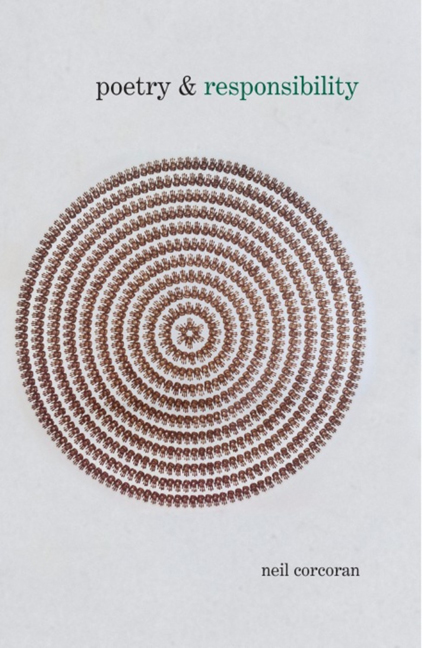Book contents
- Frontmatter
- Dedication
- Contents
- Acknowledgements
- Introduction: The Responsibilities of Poetry
- PART I
- PART II
- 4 W. B. Yeats's ‘Among School Children’: The Poem and its Critics
- 5 Question Me Again: Reflections on W. B. Yeats and Seamus Heaney
- 6 The Same Again? Louis MacNeice's Repetitions
- 7 The Celebration of Waiting: Moments in the History of Modern Irish Poetry and the Visual Arts
- 8 The Pools of Shiloh: On Paul Muldoon's ‘Our Lady of Ardboe’
- PART III
- Notes
- Index
8 - The Pools of Shiloh: On Paul Muldoon's ‘Our Lady of Ardboe’
from PART II
- Frontmatter
- Dedication
- Contents
- Acknowledgements
- Introduction: The Responsibilities of Poetry
- PART I
- PART II
- 4 W. B. Yeats's ‘Among School Children’: The Poem and its Critics
- 5 Question Me Again: Reflections on W. B. Yeats and Seamus Heaney
- 6 The Same Again? Louis MacNeice's Repetitions
- 7 The Celebration of Waiting: Moments in the History of Modern Irish Poetry and the Visual Arts
- 8 The Pools of Shiloh: On Paul Muldoon's ‘Our Lady of Ardboe’
- PART III
- Notes
- Index
Summary
I was an undergraduate in Oxford when I first read a Paul Muldoon poem. Someone came around the rooms in college in, it must have been, 1972, selling a little magazine called Caret. This pedlar was clearly a very enterprising enthusiast because this is one of the very few times I remember any such thing happening, although I do remember the neatly coiffured Jon Silkin hawking copies of Stand around the pubs – ever ready, it seemed, for a rigorous intellectual debate, even in pretty raucous surroundings and with those not blessed with his preternatural sobriety. I bought Caret and read a poem by Muldoon about what I would in those days, I suppose, have called Red Indians. I am pretty sure that he did not publish this poem subsequently, and I cannot remember its title: but of course aspects of this subject matter became hugely important to him and reached a kind of apotheosis in Madoc – A Mystery in 1990.
I do not think I understood the Caret poem very well, but it did register. I probably spent some time trying to figure it out, and I remember passing the magazine on to a pal and discussing the poem with him. So of course I bought New Weather when it came out in 1973. I liked ‘Wind and Tree’ very much, and still do – especially since its author restored the absolutely necessary second ‘together’ to its tenth line in Poems 1968–1998 – but I was a bit put off the book by the fact that it was printed entirely in italics. These seemed pretentious, or whimsical, or both to me; and I remain unclear about whether they were the consequence of design or bizarre accident. Perhaps I should chastise my younger self for being so puritanically po-faced about this, but actually I still think the italics look ridiculous.
I first really took to Muldoon with the next book, Mules, in 1977. ‘Our Lady of Ardboe’ was the poem that did it for me. I do not think that it has been written about very much by his commentators, but Muldoon himself clearly thinks very well of it, since he has published it subsequently in his Selected Poems of 1986, his New Selected Poems in 1996, and, as I have said, the Poems 1968–1998 in 2001.
- Type
- Chapter
- Information
- Poetry & Responsibility , pp. 125 - 134Publisher: Liverpool University PressPrint publication year: 2014



